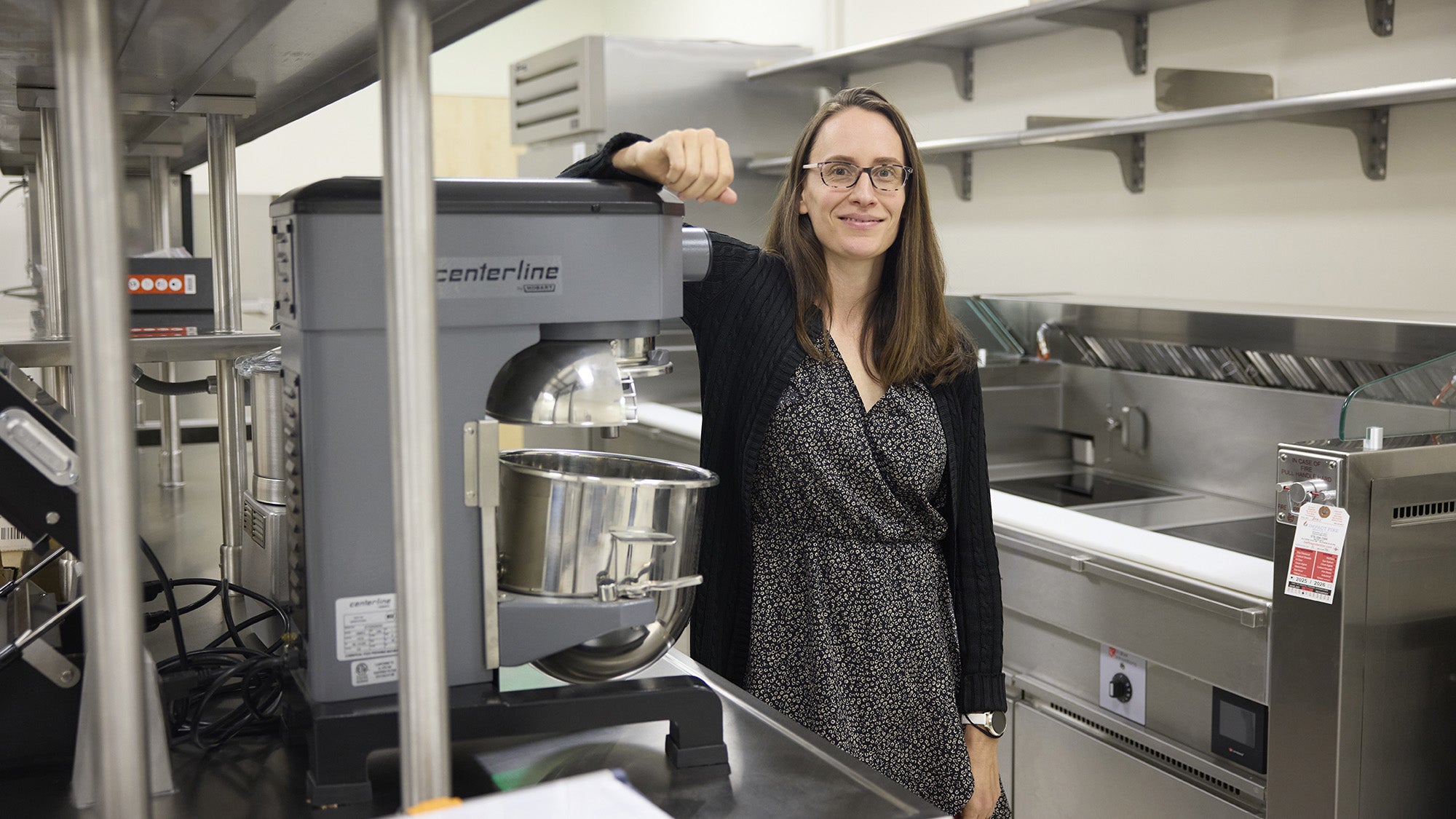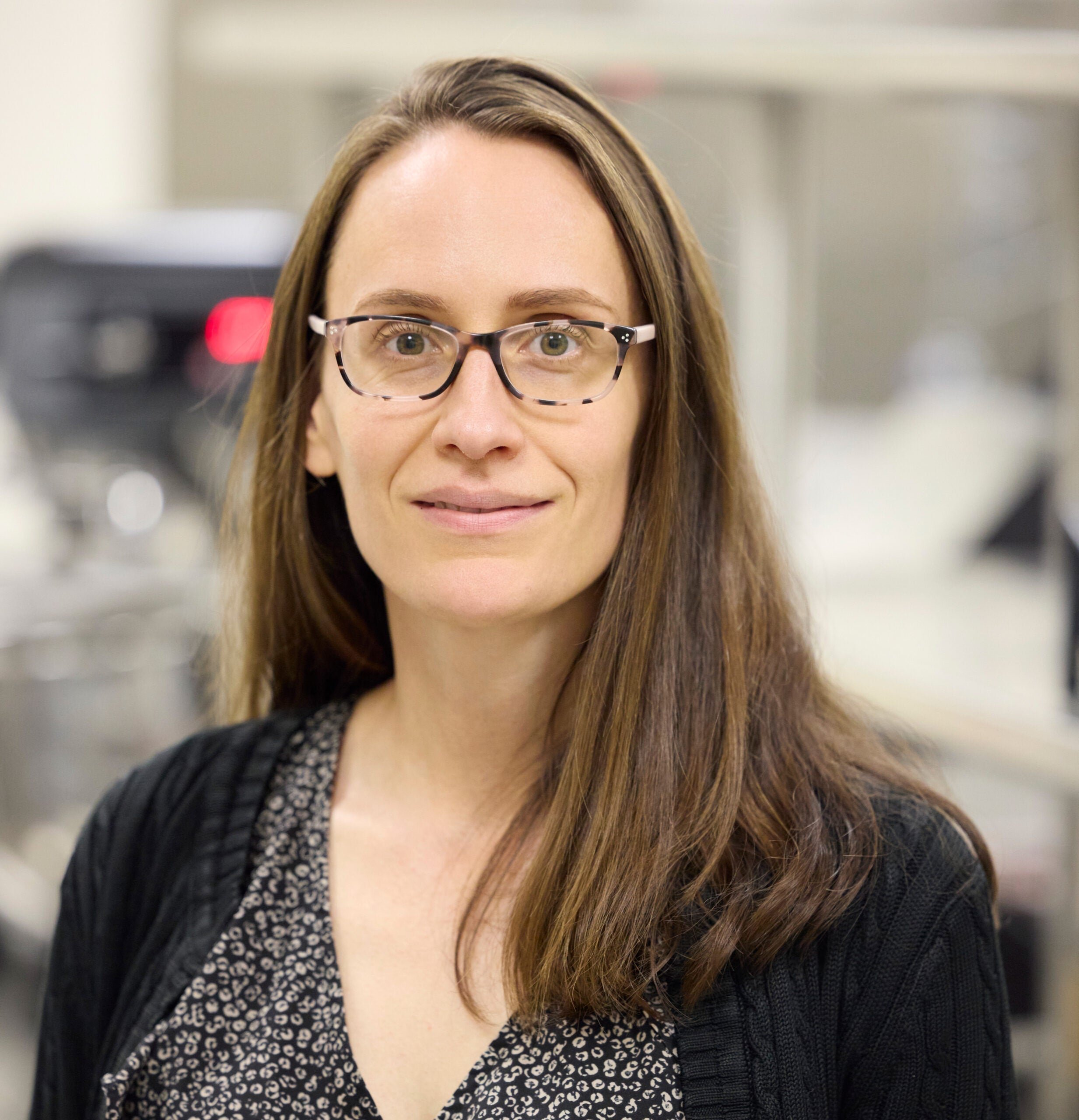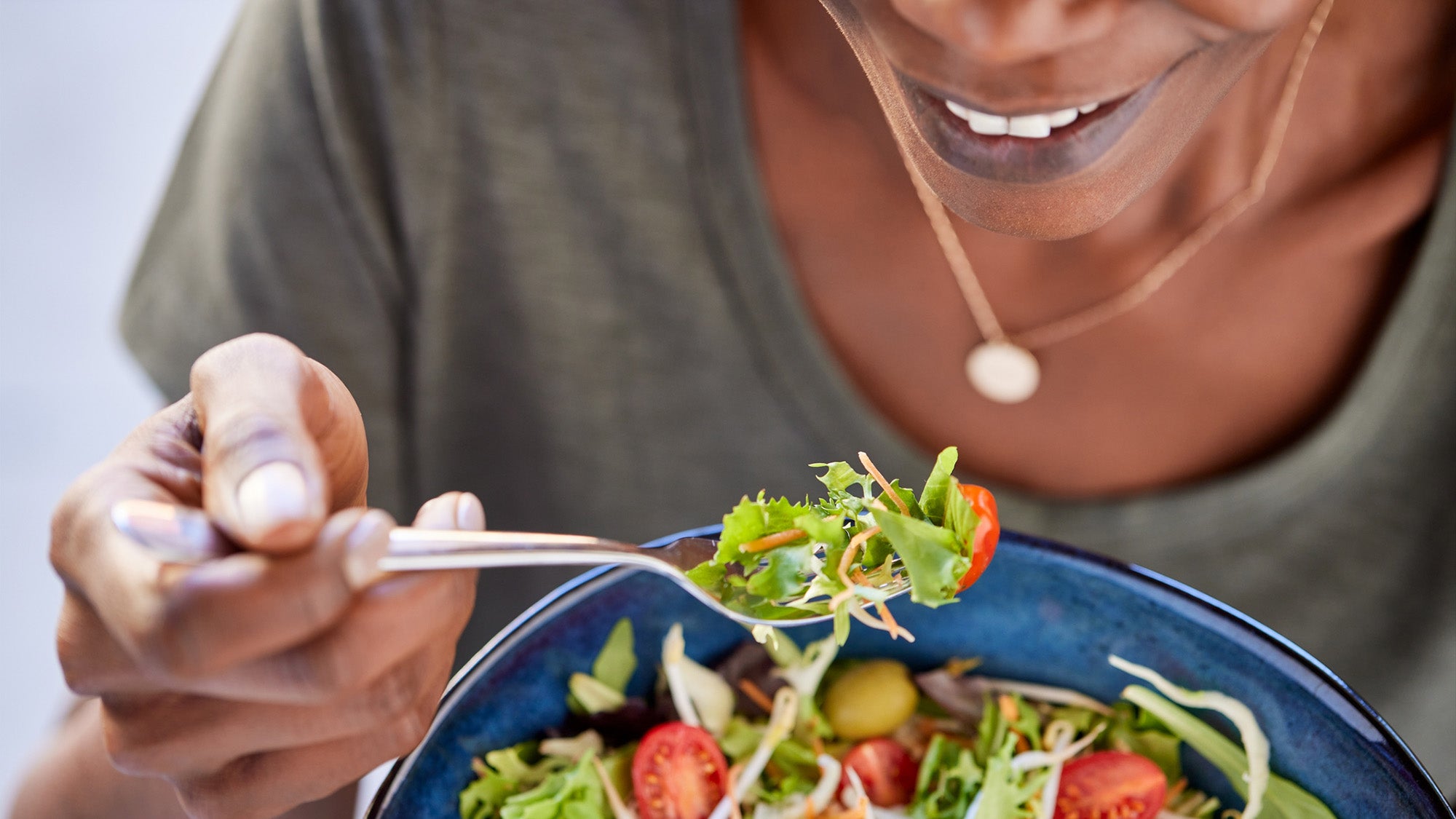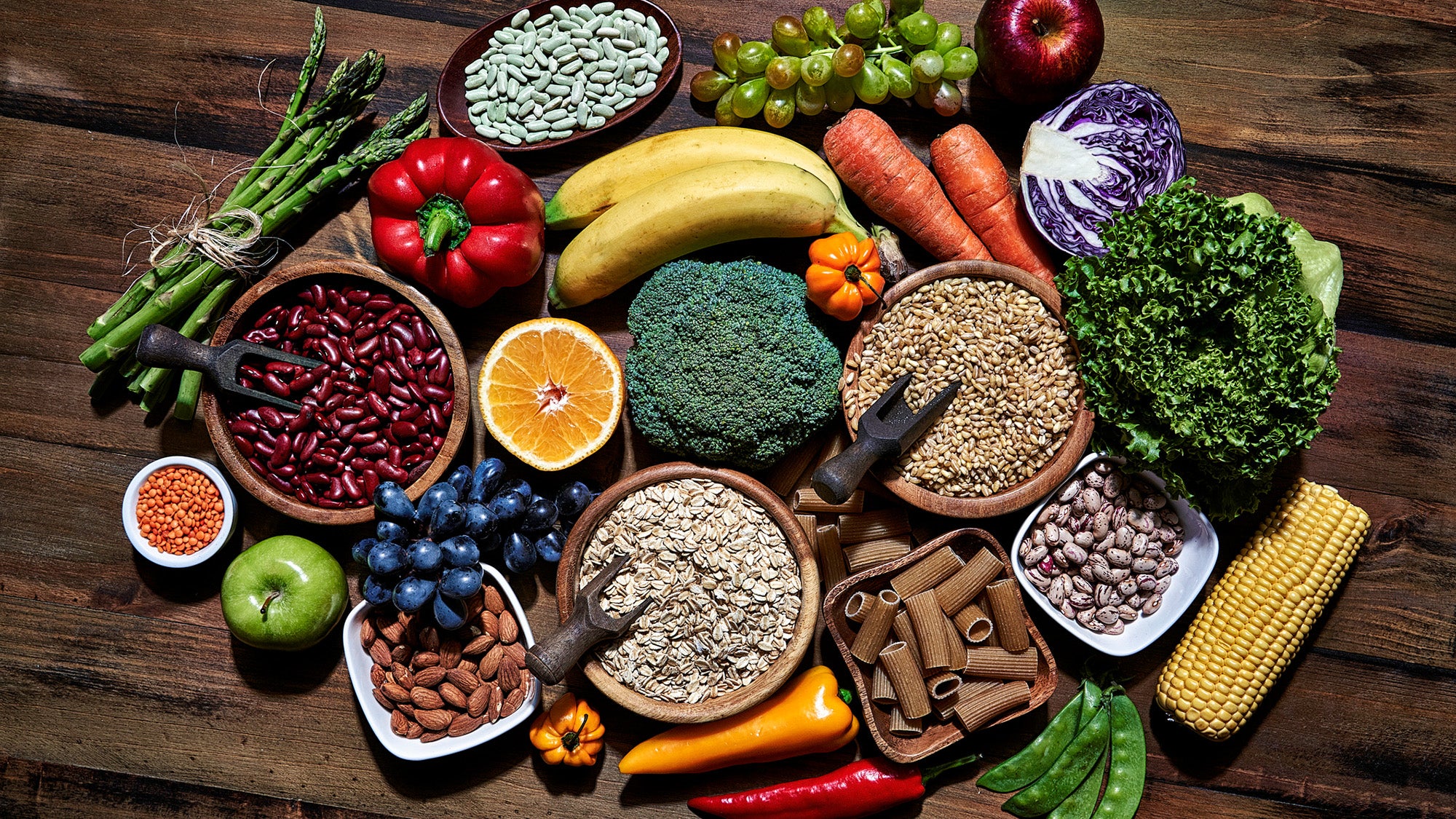The health benefits of intermittent fasting

Intermittent fasting researcher Courtney Peterson joins Harvard Chan School and will direct Department of Nutrition’s new research kitchen.
In 2018, Courtney Peterson published what proved to be a landmark paper in the burgeoning field of intermittent fasting. The study, which found that pre-diabetic men could dramatically improve their blood sugar control by eating during a shorter daily window starting in the early morning, has now been cited more than 1,600 times according to Google Scholar. It also jumpstarted her career: She now leads one of the largest randomized controlled trials of intermittent fasting in humans, in addition to other studies looking at how intermittent fasting and meal timing may benefit aspects of cardiometabolic health including weight loss, blood sugar, blood pressure, aging, and even cancer prognosis.
Peterson moved her lab from the University of Alabama at Birmingham to Harvard T.H. Chan School of Public Health over the summer and joins the School as associate professor of nutrition. She recently spoke about her intermittent fasting research and interest in exploring questions around diet quality, as well as her plans to support nutrition research through the Department of Nutrition’s new kitchen.
Q: What are the health benefits of intermittent fasting?
A: We’ve found that daily intermittent fasting—eating regular meals during a specific window, for example, between 8 a.m. and 4 p.m. or 11 a.m. and 7 p.m., and fasting for at least 16 hours a day—does help people lose weight, the equivalent of about 250 calories a day, or half a pound a week.
It doesn’t help you burn more calories, but it helps you eat less and reduces key hunger hormones such as ghrelin. In our studies, we’ve seen that people who practice daily intermittent fasting feel less hungry in the early evening and their hunger levels are more even keeled throughout the day. We think this may be, in part, because they don’t have as many spikes and crashes in their blood sugar levels.
We’ve also consistently seen large decreases in blood pressure. We’re now planning to look at how much of this is due to losing weight vs. fasting duration.
We’ve also found that intermittent fasting lowers oxidative stress, which causes cell damage and plays a role in conditions like cancer and heart disease. Intermittent fasting also seems to improve some of the key biomarkers of aging and may improve circadian rhythms.
Q: Are there any risks from intermittent fasting?
A: Daily intermittent fasting does make some people feel thirstier. We think that might be because it helps your body excrete more sodium in your urine, which has the added benefit of lowering blood pressure. That’s not a problem for most people, but people with diabetes should consult their doctor if they want to try intermittent fasting, as they may need to adjust the amount of medications they are taking to avoid too low blood sugar.
We don’t recommend intermittent fasting during pregnancy or for children, and most studies on intermittent fasting exclude people with histories of disordered eating, just to be on the safe side.
One misconception is that intermittent fasting will make you lose too much muscle mass. In research from my and other scientists’ labs, we have not seen this with daily intermittent fasting. Where muscle mass gets negatively affected is if you’re doing more prolonged fasts, for example, for days at a time.
Q: Some people may have difficulty making intermittent fasting work for them. What would you recommend?
A: Intermittent fasting isn’t for everyone. For instance, we often find that people in certain jobs, such as teachers or shift workers, have difficulty because they don’t get good breaks during the day to eat. And dinners and social outings can be tricky if you are fasting while everyone else is eating.
If you can do intermittent fasting by eating an early dinner (by 6 p.m.), data suggests that this is likely best. Doing intermittent fasting by eating earlier in the day is better for blood sugar and blood pressure, so most of our studies have eating windows that end by about 6 p.m. There are still benefits from doing intermittent fasting later in the day, such as losing weight and lowering oxidative stress, but they are much smaller.
If that schedule doesn’t work for you, I suggest following the old adage of eating breakfast like a king, lunch like a prince, and dinner like a pauper—meaning, eat your larger meals earlier in the day. There is good research suggesting that eating more of your calories early in the day helps with losing weight and improving blood sugar and even improves fertility in women.
If neither of those two meal timing approaches are appealing, my third recommendation would be to skip breakfast and do intermittent fasting. And if that is still not doable, I would say, just follow a simple rule, such as don’t eat dinner too late at night, as that is the time of day that your blood sugar control is worse.
I generally eat during a six- to eight-hour window, except if I’m going out to dinner. Then, I don’t worry about it. I didn’t do intermittent fasting at all last year while I was breastfeeding my second child. As my kids get older, I might need to change my intermittent fasting routine. For people who want to do intermittent fasting, I recommend an eight-hour or shorter window, as this is where we really start to see benefits kick in. Though, you may need to start with a ten-hour window gradually work your way towards a shorter window.
Practicing intermittent fasting doesn’t mean following perfect rules. Just think of it as core principles—if you can eat over a shorter time period and/or you can eat earlier in the day, you’ll get more benefits. And the good news is that you only need to follow it at least five days a week to see benefits, so you can have ‘break’ days.
Q: What are some other research questions you’d like to answer?
A: I’m currently involved in four large clinical trials on intermittent fasting. One thing we’re looking at is whether optimizing circadian rhythms can improve things like blood sugar levels, weight, and mood. Another study in my lab is testing whether intermittent fasting can improve the effectiveness of chemotherapy and radiation in rectal and breast cancer patients.
While most of my research is on intermittent fasting, I’m also interested in questions about diet quality and food as medicine. For example, can eating lots of certain types of foods, for instance whole fruit or legumes, affect blood sugar levels? Can we formulate diets that might be able to reverse type 2 diabetes or mitigate hypertension? Another study I’m working on is looking at whether eating a probiotic-rich diet can improve cognition and reduce the risk of vascular dementias.
In general, I’m always excited to work on something that can help people.
Q: How will the Department of Nutrition’s new research kitchen be used?
A: The primary goal is to provide meals for research studies being conducted by members of the Harvard community. If a researcher is, for example, looking at whether omega-3 fatty acids are good for you, or comparing different dietary patterns, probably half of those study participants will have difficulty eating the way the researcher asks them to. But if you give participants prepared foods, you know you’re testing the pure effect of the foods, not the effect of how well people can follow instructions.
Eventually, we also want to provide dietary counseling services for participants in nutrition studies and help researchers analyze what foods participants are eating. It will probably take at least two to three years to get the kitchen up and running. We’ll eventually share it for other purposes, such as teaching.
Quick hits
I grew up in Arlington, Virginia, a suburb of Washington, D.C. I felt like I got the best of all worlds because we were close to the city but only a 25-minute drive from rural areas.
I got my first research experience in high school working at the National Institutes of Health (NIH). I had phenomenal science teachers in high school. Ms. Spall, my AP Chemistry teacher, saw that I needed a challenge and signed me up for a summer research opportunity at the NIH through the Howard Hughes Medical Institute.
I switched to nutrition research after earning degrees in math and physics. When I was near the end of my studies at Harvard [PhD ’11], I realized that I wanted a career in science where I could do more to directly help people. I’d always had an interest in nutrition, so I cold-emailed people in the field, and wound up doing a postdoc at the Pennington Biomedical Research Center in Baton Rouge, Louisiana.
Something people might not know about me is that I played soccer competitively as a child and broke my nose twice during games. Also, I’m really good at hula hooping. I used to be able to keep several up at a time.
A TV show or movie I’d recommend: Most of the TV shows I watch these days are kids’ programs. But I really love the movie Contact, where Jodie Foster receives extraterrestrial signals from outer space. I saw it the summer after high school and it’s still one of my favorite movies. It was written by the famous science writer Carl Sagan and has a very cool intertwining of themes around science and religion.



